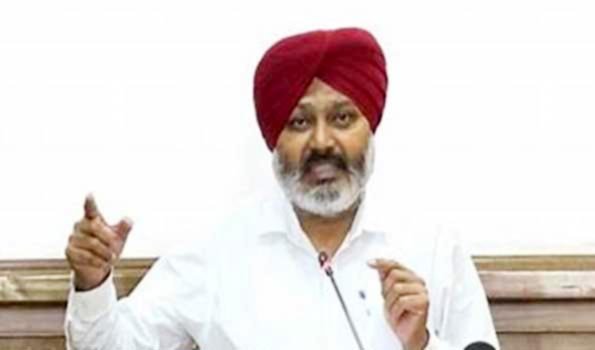New Delhi, Aug 17 (UNI) The Supreme Court on Thursday questioned the policy of the Gujarat and Union governments about selective application for remission (pre-mature release) of Bilkis Bano’s 11 convicts serving jail sentence for gang-rape and murder.
The Apex Court was hearing a batch of pleas, including certain pleas filed by third parties, challenging the decision of the Gujarat government to grant remission to 11 convicts who had gang-raped Bilkis Bano and murdered her family members during the 2002 Gujarat riots.
The Top Court today asked some uncomfortable questions to the state government when the senior lawyer of Gujarat govt, Additional Solicitor General (ASG) S V Raju, tried to justify the remission as per law and rules framed on the remission of convicts.
Raju was unable to give any reply. To this, the Apex Court said, “the opportunity to reform must be given to all. And not just a few.”
The state government granted remission and released from jail 11 convicts, who were found guilty and convicted for the gang rape of Bilkis Bano during the 2002 communal riots in Gujarat.
A two-judge bench of the Supreme Court, headed by Justice BV Nagarathna and also comprising Justice Ujjal Bhuyan observed that the opportunity to reform and reintegrate into society should be given to every eligible convict.
“Why is the policy of remission being applied selectively? The opportunity to reintegrate and reform should be given to every convict, not a few. Question is, not en masse, but where eligible, are all life sentence convicts after 14 years being given the benefit of remission?” Justice Nagarathna asked.
The Gujarat government had granted remission to the 11 convicts based on a May 2022 judgment of the Supreme Court.
ASG Raju said that the State government was bound by the effective order of a May 2022 Supreme Court ruling, that had said the State’s remission policy would apply in the case and it should consider such applications for remission based on the Gujarat government’s policy.
Raju said that all compliances with the 1992 remission policy of Gujarat were done legally and with due procedure.
The senior law officer also narrated how Section 432 (Power to suspend or remit sentences) of the Criminal Procedure Code at length applied to these convicts while they being granted remission in the case.
Raju argued that absolute deterrence principles will not apply in case of reformative theory. “Person should be given a chance to reform himself after even heinous crime,” he said.
The Apex Court asked all the parties to conclude their respective submissions and arguments on August 24, the next date of hearing in the case.
The Gujarat government awarded remission to all her 11 convicts and freed them on August 15 last year.
Bano has filed a writ petition in the Top Court challenging the remissions granted to 11 convicts.
The 11 convicts who were set free are Jaswant Nai, Govind Nai, Shailesh Bhatt, Radhyesham Shah, Bipin Chandra Joshi, Kesarbhai Vohania, Pradeep Mordhiya, Bakabhai Vohania, Rajubhai Soni, Mitesh Bhatt and Ramesh Chandana.











